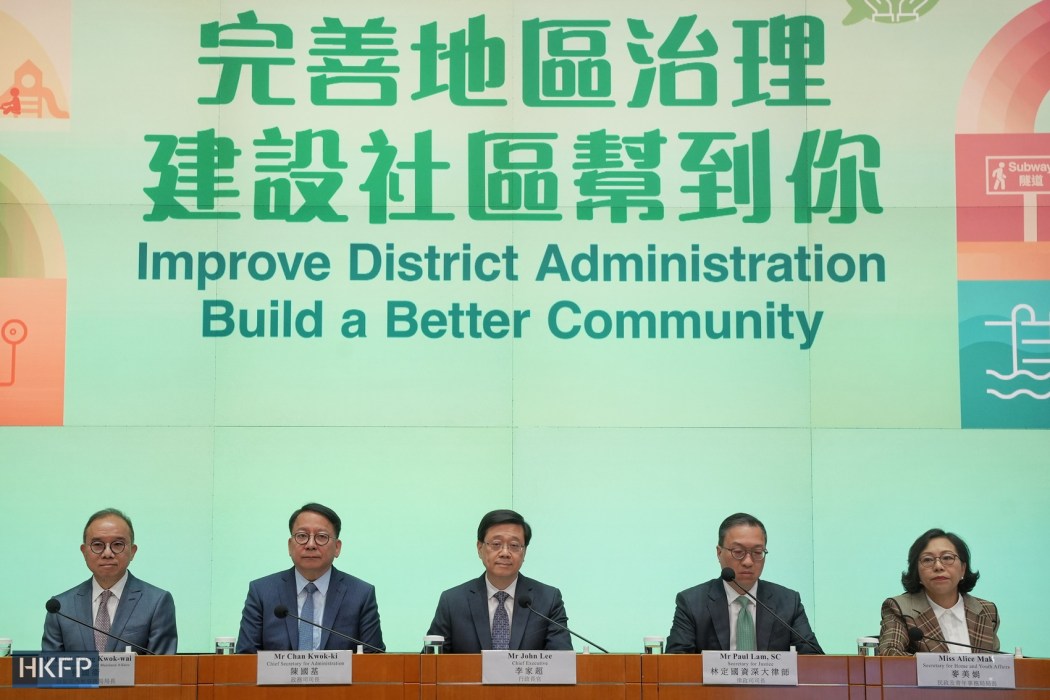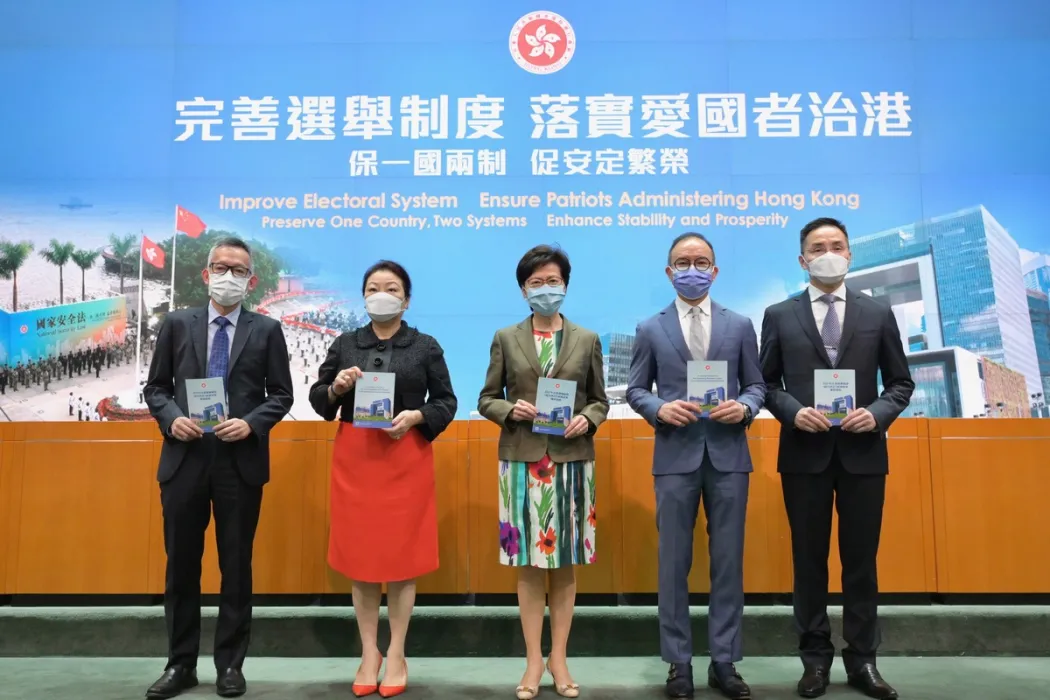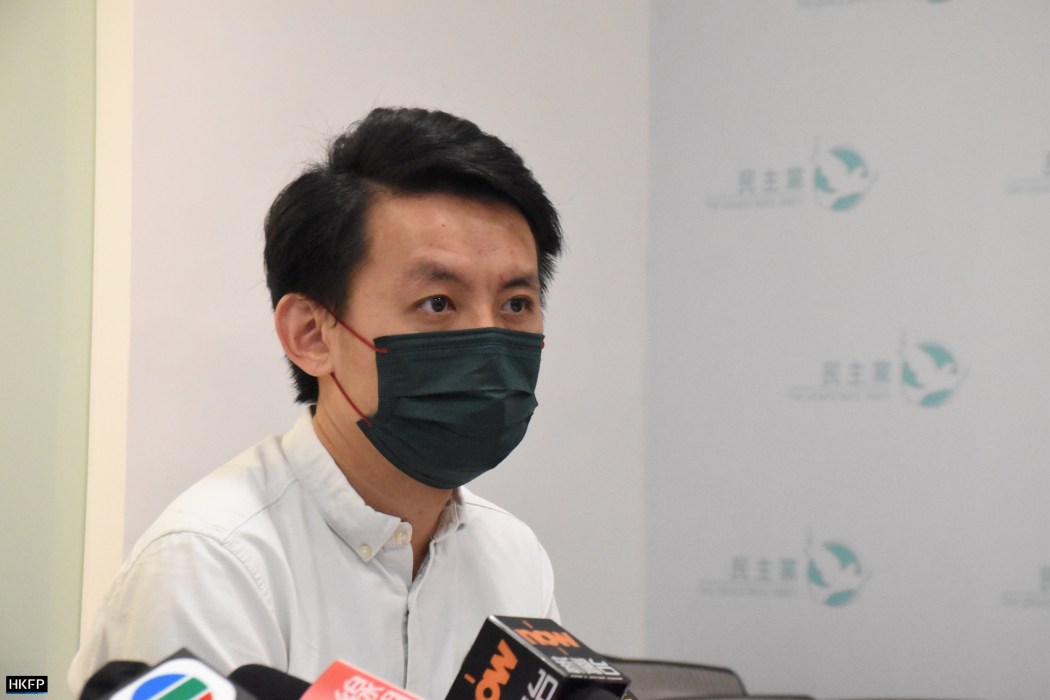The number of registered voters in Hong Kong has declined by nearly 80,000 compared to last year, marking the second consecutive annual decrease, according to voter registration data published on Monday.

The number of Hongkongers registered to vote in direct elections – for District Councillors during the District Council elections, and for lawmakers representing geographical areas in the Legislative Council elections – stood at 4.33 million this year. The figure marked a decrease of 79,309 from last year, the Registration and Electoral Office data showed.
Voters in the 18 to 20 age group saw the steepest drop of 52 per cent. The age group with the second largest drop was those aged 21 to 25, in which voters dropped by 10 per cent.
The fall in voters contrasts with the rising trend in previous years. Since 2012, Hong Kong’s voter registrations had increased steadily, peaking at 4.47 million in 2021.
The year 2022 marked the first time in 10 years that the number of voters fell, with a decrease of around 60,000.
The release of the updated voter registration figures came as the city counts down to the upcoming District Council election scheduled for December 10. It will be the first since authorities introduced changes that District Councillors have said benefit government interests instead of the public.

Plans to overhaul the District Council elections were unveiled in May 2023 to ensure only “patriots” are elected, following a pro-democracy landslide at the last polls in 2019. The number of seats chosen democratically by the public will be slashed to around 20 per cent, with the rest chosen by the city’s leader, government-appointed committees and officials.
Constituency boundaries will be redrawn and each local council will be chaired by a government official, similar to colonial-era arrangements. All candidates will undergo national security vetting to ensure patriotism.
According to the data released on Monday, registered voters for the city’s two other elections – the Election Committee polls and functional constituencies polls – also dropped.

Beijing imposed an overhaul of Hong Kong’s electoral system in March 2021, which changed the composition of the Election Committee – a small circle of voters tasked with selecting the city’s chief executive – and gave it new power to elect some lawmakers.
Since the overhaul, the number of registered voters who can elect the Election Committee has also fallen, from 257,992 in 2020 to 7,595 in 2021. The number of individual voters were slashed while the number of corporate voters increased to make up 70 per cent of the electorate.
Meanwhile, the functional constituencies, which represent industries and special interests groups, also saw a decline in registered voters for the second year in a row, from 219,254 in 2021 to 206,656 this year.

Lo Kin-hei, the chairperson of Hong Kong’s Democratic Party, told US government-funded news outlet Radio Free Asia in August, when the government released provisional voter figures, that the decline of registered voters should be attributed to the emigration wave as well as the election overhaul, as it reduced the number of directly elected seats.
“For young people or the general public, the impact of casting a vote has significantly diminished. The rate at which I can influence lawmakers is so minuscule that it diminishes the desire to participate,” Lo said in Cantonese.
Support HKFP | Policies & Ethics | Error/typo? | Contact Us | Newsletter | Transparency & Annual Report | Apps
Help safeguard press freedom & keep HKFP free for all readers by supporting our team

LATEST FROM HKFP
HKFP has an impartial stance, transparent funding, and balanced coverage guided by an Ethics Code and Corrections Policy.
Support press freedom & help us surpass 1,000 monthly Patrons: 100% independent, governed by an ethics code & not-for-profit.










